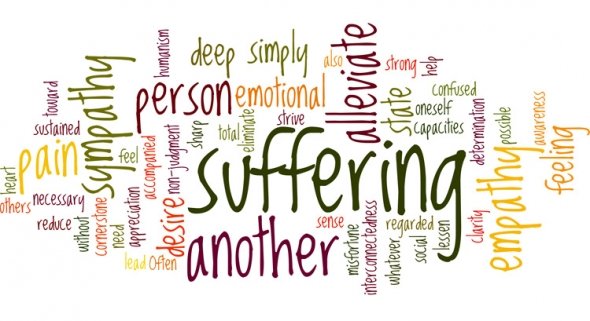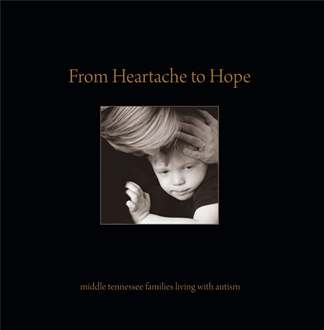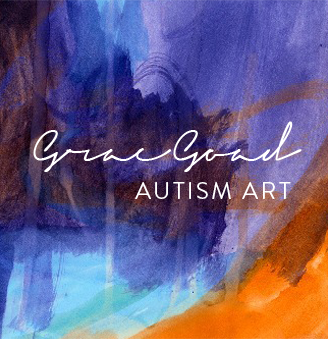The autism community, especially, understands the need for compassion. At least when it comes to our sons and daughters with autism.

We’re not the only ones with this need. Mothers, daughters, fathers, sons, anyone, everyone, needs and deserves compassion.
Apparently a number in my greater autism community disagree.
Parents, and a few autism related organizations, enraged by the story of Kelli Stapleton, in which a desperate mother attempted murder/suicide of her daughter with severe autism, have launched a blog and a hashtag campaign, “#IAmNOTKelliStapleton,” to communicate they love their children with autism and would never attempt to end their son or daughter’s life.
Stapleton was a Michigan-based blogger—I’d never heard of her or her blog—whose 15-year-old daughter frequently demonstrated severely aggressive behavior. She regularly bit, bruised and attacked her mother. (About seven percent of the autism population is diagnosed with severe autism, which sometimes includes extreme aggression. Individuals with autism can be incredibly strong and live at the perilous razor edge of flight or fight. Unfortunately, aggressive behavior is not uncommon in autism. There are many reasons it occurs. Informed clinicians and parents know behavior is an attempt to communicate. Stapleton’s daughter, Isabelle—nicknamed Issy—was non-verbal. Perhaps she was in pain or tremendously frustrated. Who wouldn’t be if unable to successfully express themselves?)
Like too many families, the Stapletons fought for years with insurance agencies, governmental systems, and treatment centers to obtain adequate treatment for their daughter. Before the murder/suicide attempt, Issy had been in a treatment center for less than a year. The family continued to fight to keep her there as the treatment appeared to be working. Insurance refused to pay any longer and Issy was sent home and quickly regressed to her aggressive behavior.
Not long after, Stapleton made the very unfortunate and misguided decision to take her own life and that of her daughter’s. She believed they’d die, end up in heaven, and everyone would be better off. The attempt to asphyxiate the mother and daughter by lighting two charcoal barbecue grills in the back of their closed van, failed. Instead of dying, the mother passed out and the daughter was in a coma for several days. After spending a year in prison, the mother was sentenced last week to 10 to 22 years on a lesser plea of child abuse.
Late last month, an appearance on Dr. Phil, and other media focusing the impending sentencing, brought new attention to the case. A national debate ensued within the autism community, polarizing those who expressed compassion for the mother—not her behavior—and those who chose to distance themselves in the public eye from her actions and communicate their love for their children would never lead to murder.
I am grateful that, after 17 years on this journey as a parent of a (moderately severe, non-conversational) daughter with autism, that our community seems to be more accepting of our sons and daughters with this complex disorder. When my daughter was diagnosed, we didn’t have hashtags. If we did then, hashtag sentiment by many would have been #IHateAutism. I was in the disdained #AcceptanceCamp. Thankfully, we have a lot more campers these days.
I believe Stapleton did not hate her daughter but, rather, she, herself was ill, stressed, and incredibly desperate. Whether she had adequate state services or not, isn’t the point. Some of us access resources, and others are too emotionally, mentally, educationally, and socioeconomically bankrupt to do so. I’ve seen it repeatedly for the last nearly two decades. It can be puzzling why some parents reach out to what is available—and there is rarely enough adequate resources anywhere—and access or create resources and others don’t. It is very easy to swoosh down the slippery slope into judgment of other’s different ways of coping without considering the many complicated and extenuating circumstances individualized to every parent.
Stapleton is not the first parent of a child with autism who tried to end her own life and that of her child. It’s the only one I know about in which the attempt failed. Unfortunately, statistics illustrate that murder/suicides in our community are not rare. With the help of friends, I was able to locate two lists, which included other disAbilities, and I heard about a third exclusively focusing on autism. Googling “autistic children killed by parents” brings up a sickening number of pages filled with links.
I clearly remember two stories that occurred during the early part of our autism journey:
Desperate, a female physician and her young daughter with autism, left behind their family, and sought better services in another state. The separation from her husband and other child/children was intended to be temporary and only for purposes of the move. But, temporary became permanent for the daughter, when, desperate, took her daughter’s life.
Story two: an aging father who could not get services for his aging son took both of their lives.
Note the reoccurring words: Desperate. Lack of services. Hashtag those. There’s the needed point of focus.
#Desperation
#LackOfServices
———————-
#Compassion
There’s a misunderstanding in this hot little debate. Compassion. Does. Not. Condone Kelli Stapleton’s actions. Most agree that what this mother did was inconceivable. Many say they would never do that, but as my friend, an expert in criminal forensics reminds me, murderous rage is not premeditated. How many of us autism parents, when we are tired, under-nourished (physically, emotionally, spiritually,) stressed, stretched, can become enraged? How many of us live like this too much of the time while navigating a most challenging journey? The answer is too many. Why? The reasons are numerous. But here’s a few: #LackOfSupports #LackOfServices #Desperation #ASenseOfIsolation
Stapleton’s muder/suicide attempt was premeditated. Even if another parent believes they would never commit the acts this mother did, no one but Stapleton knows how desperate she became. Can I say with absolute confidence that I might not snap in the same circumstances? Stapleton is said to have been an autism advocate. That fact doesn’t match the rest of the data. After googling and reading a small portion of her old blog, I question the solidity of her mental health. Both the court psychiatrist and her husband opined about the perilous state of her mental and emotional stability.
The public is frequently unsympathetic to mental health issues in criminals. Such underscores our culture’s continued lack of understanding (and #compassion) to chemical, genetic, and environmental circumstances that foster mental illness.
The majority of autism focus concerns the child on the autism spectrum. Too, too little is given to the caretakers. #SupportGroups #Respite #CrisisCenters #Hotlines #FosterHomes #LifelineSupport ( < akin to AA sponsors or suicide prevention hotlines)
It is much easier to put distance between ourselves with blame, accusation, and social media hashtags than to realize we do not have all the data, we did not live her life, live within her mind, live the daily torture inflicted by her innocent, challenged child. Yes, the daughter needs compassion. So does the ex-husband and the other children in the family, but they are not the focus of the finger pointing. They are not subjects of hashtags.
There is no justification for Stapleton’s actions. But there is opportunity to refocus the spotlight from Stapleton’s act, from blame and distancing to spotlighting what too many families everywhere are experiencing:
#Isolation
#Desperation
#LackOfSupport
And what can be done about it:
#SystemsChange
#CaregiverSupports
Whether we can muster #Compassion or not, we can use our energies better for awareness, for hands-on systems change, and/or program creation so that no mother or father feels so helpless that they attempt the unthinkable, or worse—are successful.
#BeTheChange
Sources for this story:
NBC News, Stapleton’s Blog, #IAmNOTKelliStapleton Blog, image source
Comments on this blog post are welcome if they are respectful. Courteous disagreement is fine. Contentious, repetitive, name-calling debate is not welcome.




